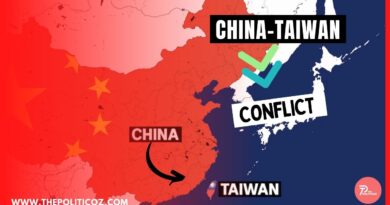Energy Crisis: Electricity and Gas Shortages
Energy Crisis in Pakistan: Electricity And Gas Shortages
Pakistan has serious electricity and gas shortages, which hurts the economy and the people of the country. Pakistan’s energy needs are growing quickly, but the country’s ability to make energy hasn’t kept up. This has caused widespread power outages and shortages. This is made worse by technical problems and maintenance issues at power plants, fuel shortages, inefficiency in the distribution network, and lack of money. Businesses and industries in Pakistan have been hurt by the energy crisis, which has made them less competitive and raised prices for consumers. People’s daily lives are also affected by the lack of electricity and gas. They often lose power and have to pay high energy bills. Pakistan is having trouble getting enough energy, and the government and the private sector need to work together to fix the problem. They can do this by investing in new generation capacity, making the energy sector more efficient, cutting down on waste, and fixing problems with governance and corruption in the energy sector.
Also read: Top 10 Revolutionary Personalities & Their Revolutionary Works
Factors that contribute to Energy Crisis: Electricity and Gas shortages in Pakistan
Electricity and gas shortages in Pakistan are caused by a number of things, such as:
Insufficient generation capacity:
Pakistan’s need for electricity is growing, but the country hasn’t been able to keep up with its ability to make electricity. Because of this, there are often power outages and shortages, especially during the busiest times of day.
Technical and maintenance problems:
Power plants and distribution networks can run out of electricity because of technical problems and maintenance problems. This is especially true of older power plants that need to be fixed or improved.
Fuel shortages:
Most of the fuel for Pakistan’s power plants comes from natural gas and oil. When there aren’t enough of these fuels, which can happen when there are problems with production at home or in the supply chain, there may not be enough electricity.
Inefficient distribution networks:
Pakistan’s electricity distribution networks are often plagued by technical problems, theft, and inefficiency. This means that a lot of power is lost or stolen before it gets to the end user.
Financial constraints:
Pakistan’s power sector is also having trouble with money. The government is having a hard time paying for fuel imports and power plant maintenance. This has caused power plants to shut down because they haven’t been paid, which has led to a lack of electricity.
Political instability:
In some parts of Pakistan, natural gas and oil can be hard to get because of political instability and conflict. This can lead to fuel shortages and power outages.
Also read: Depression, symptoms, types and Treatment
Natural disasters:
Floods, earthquakes, and other natural disasters can also mess up the power supply and lead to short supplies of gas and electricity.
How to Overcome this Energy Crisis in Pakistan
To end the energy crisis and fix Pakistan’s lack of electricity and gas, the following steps can be taken:
Increasing the country’s ability to generate power:
The government can encourage the private sector to invest in new power plants, which can help the country’s ability to generate power. Government should invest in renewable energy sources like solar and winder power which can be availed by every citizen, and these would help us use less fossil fuel.
Improving efficiency:
The government can work to make the power distribution networks more efficient and cut down on the amount of power that is lost or stolen. This could mean updating and modernizing the networks and putting in place stricter rules to stop theft.
Getting more fuel:
To stop relying so much on fuels from other countries, the government can invest in increasing domestic production of natural gas and oil and also look into other energy sources like coal and hydropower.
Getting people to save energy:
Getting people to save energy and waste less can also help lower the demand for electricity and gas. This could be done by promoting appliances that use less energy, making buildings better insulated, and encouraging people to use public transportation.
Getting around financial problems:
The government can do things to help the power sector get around its financial problems, such as improving the collection of electricity tariffs, cutting subsidies, and putting more public money into the sector.
Getting rid of corruption and making governance better:
Getting rid of corruption and making governance better in the power sector can help make sure that resources are used effectively and efficiently and that consumers’ rights are protected.
Strengthening regional cooperation:
Strengthening regional cooperation on energy issues can help make energy supplies safer and less reliant on a single fuel source.
Conclusion:
If these steps are taken, they can help Pakistan get out of its energy crisis and make sure that the country has a steady supply of electricity and gas in the future. By looking at the energy crisis as a whole, Pakistan can make sure that its people have a steady and reliable supply of electricity and gas and that its economy stays competitive on the world market. Getting rid of the lack of electricity and gas is a big problem, but it also gives Pakistan a chance to build a more reliable and sustainable energy sector that will help all of its people.




